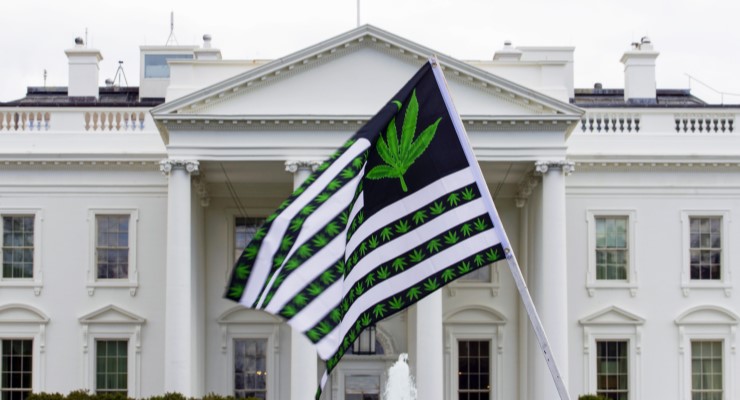
US President Joe Biden has pardoned thousands of Americans with federal cannabis convictions, reigniting the debate around whether Australia should do the same for its citizens — or go a step further and decriminalise the drug altogether.
It comes a week after the Greens launched a campaign to legalise cannabis nationally.
“This is really exciting from an Australian perspective because it shows how important action by the federal government is when it comes to cannabis law reform,” Greens Senator David Shoebridge told Crikey. “This answers those few critics who have been saying it’s not the job of the federal government to advance federal law reform. Look across the pond at the US.”
More than 40% of illicit drug arrests in Australia are for cannabis. Of the 166,321 arrests across 2019 and 2020, 76,669 were for weed — an increase of 8% from the year prior. The number of national illicit drug arrests increased 96% over the past decade. But 88% of all drug arrests are for consumer quantities, and that statistic is even higher for marijuana — 91% of national cannabis arrests are for low-level quantities.
Although most charges and convictions for cannabis possession in Australia (like the US) are not federal, Shoebridge says the Greens are considering whether there is legislative capacity for past state convictions to be overturned by federal bodies.
“Either way, once we legalise cannabis federally, it’s a political inevitability that the states follow,” he said.
Advocacy group Sisters Inside CEO Debbie Kilroy says this is a “great step forward” to begin the process of decriminalising cannabis possession — and drugs more broadly — in Australia.
“The time has come to stop the criminalisation of low-level drugs,” she said. “Here in Australia we must follow so that anybody with a possession conviction is pardoned and released from prison.”
The impact on the “huge number” of Australians charged, arrested and convicted with simple cannabis possession every year is “very detrimental”, said veteran drug law reform advocate Dr Alex Wodak, citing research comparing institutional responses to cannabis convictions in Western Australia and South Australia. WA’s “punitive” approach was far more damaging than SA’s “slap on the wrist”.
“There was no difference in subsequent cannabis use, but WA people were more likely to have broken up with a significant relationship, lost accommodation, lost a job, and to just feel pissed off, angry and alienated,” Wodak said.
So can America’s move supercharge Australia’s movement to decriminalise marijuana?
Cannabis consultant Rhys Cohen is confident the announcement will help fast-track Australian progress.
“The US runs the world when it comes to drug policy and has done for decades,” he said. “Where the US goes, the rest of the world is certain to follow. The whole presidential pardon of federal offences is a very American phenomenon. It’s symbolic but symbols are really important.”








Crikey is committed to hosting lively discussions. Help us keep the conversation useful, interesting and welcoming. We aim to publish comments quickly in the interest of promoting robust conversation, but we’re a small team and we deploy filters to protect against legal risk. Occasionally your comment may be held up while we review, but we’re working as fast as we can to keep the conversation rolling.
The Crikey comment section is members-only content. Please subscribe to leave a comment.
The Crikey comment section is members-only content. Please login to leave a comment.